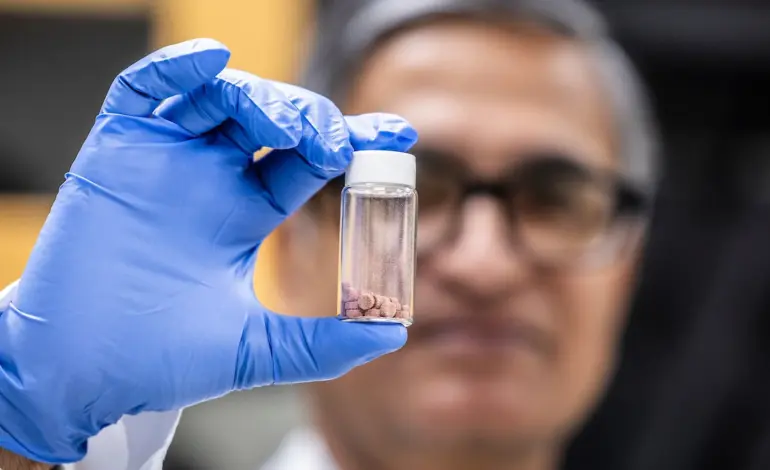Texas A&M’s Khan Advances Pediatric Medicine with 3D Printing

The innovative work of Khan, the dean of the Irma Lerma Rangel College of Pharmacy at Texas A&M University, is set to reshape pediatric medicine through the application of 3D printing technology. On September 18, Khan will present his research at the Fast Company Innovation Festival, discussing how customized medication can significantly improve healthcare outcomes for children. His participation is part of a panel titled “Leaping to New Heights: The Unparalleled Progress in Healthcare,” where experts will explore transformative medical innovations.
In recognition of his groundbreaking contributions to medicine, Texas A&M University has been honored as a recipient of Fast Company’s 2025 Innovation by Design Awards. This accolade highlights the institution’s commitment to forward-thinking solutions in business and academia. The awards evaluate various projects based on criteria such as functionality, originality, and potential cultural and business impact, providing a global platform for innovative ideas.
Transforming Pediatric Medication
Khan’s research addresses a critical challenge in pediatric healthcare: the difficulty of accurately dosing medication for children. Traditional methods often rely on adjusting adult dosages, a process known as compounding, which can lead to inaccuracies. “The way we administer medication to children these days is very inefficient,” Khan stated. He points out that while liquid dosages can be scaled down more readily, many medications do not come in liquid form, complicating the dosing process.
To overcome these challenges, Khan has developed a method that utilizes 3D printing to create personalized, variable dosages tailored specifically for pediatric patients. This technology allows for the production of dose-flexible tablets that can be customized based on a child’s weight and age. The tablets can also be designed in appealing shapes and flavors, enhancing adherence to medication regimens among young patients.
“We are 3D printing medications, which gives us those flexible dosage forms,” Khan explained. “With this innovation, you are giving the precise dose in the precise amount to a pediatric patient, very easily.” This advancement not only aims to improve the accuracy of dosages but also seeks to streamline the dispensing process through an automated system, ultimately benefiting hospitals and caregivers alike.
A Career of Innovation
Khan’s extensive background in pharmaceutics positions him uniquely in the field. After earning his doctorate from St. Johns University College of Pharmacy, he served as a faculty member at Texas Tech University’s School of Pharmacy before joining the U.S. Food and Drug Administration (FDA) as a division director for over a decade. While at the FDA, he led a team that approved the first-ever 3D-printed medication tablet dosage forms, initially intended for geriatric patients. Recognizing the potential for pediatric applications, Khan’s current research aims to fill the existing gap in pediatric pharmacotherapy.
Now leading a talented interdisciplinary team at Texas A&M, Khan is dedicated to producing accurate medication dosages that cater to children of all ages. His work embodies the university’s mission to serve as a positive force across various fields and to improve lives globally through innovative solutions.
The implications of Khan’s research are profound, promising to alleviate the burdens on pharmacists and ensure that children receive the precise medication they require. As this technology evolves, it holds the promise of transforming pediatric healthcare, making it safer and more effective for generations to come.






